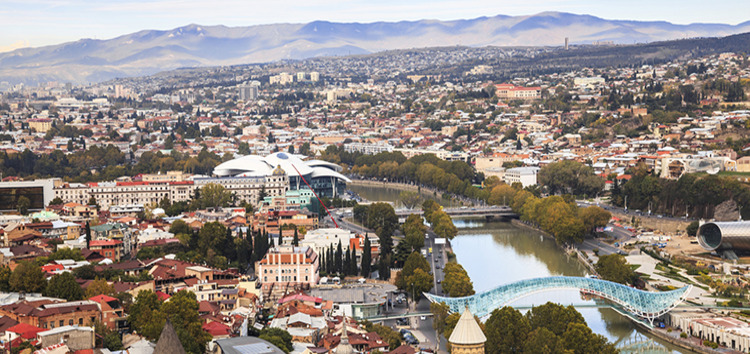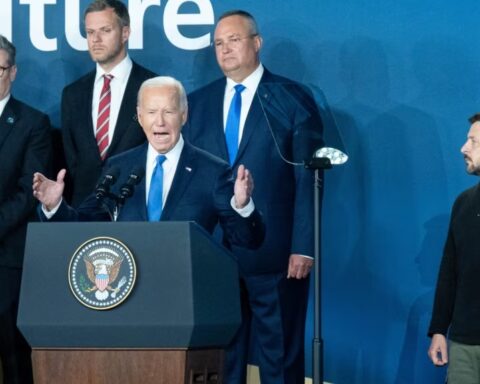As travelling and physical meetings continue to be disrupted by the pandemic, the EBRD President will leverage digital platforms, which have profoundly reshaped ways of working and international relations over the past year.
Ms Renaud-Basso said: “I am very pleased to visit Georgia. The virtual format reflects both the EBRD’s and Georgia’s agility and capacity to adjust to present circumstances. It is also a testimony to the strong relationships that the EBRD builds via its resident offices. I am therefore looking forward to the opportunity to reiterate the EBRD’s commitment to Georgia and our strong support for the country in the face of the coronavirus pandemic. This was demonstrated by our record result in Georgia last year. We stand ready to make our contribution to a strong, sustainable and inclusive recovery. I do hope that travelling to this beautiful country will be possible very soon.”
President Odile Renaud-Basso will meet the President of Georgia, Salome Zourabishvili, the Prime Minister, Giorgi Gakharia, the Minister of Finance and EBRD Governor, Ivane Matchavariani, the Vice Prime Minister and Minister of Regional Development and Infrastructure, Maya Tskitishvili, the Minister of Economy and Sustainable Development, Natia Turnava, as well as the Mayor of Tbilisi, Kakha Kaladze.
Focusing on the economy, President Renaud-Basso will also speak with the Governor of the National Bank of Georgia, Koba Gvenetadze, as well as representatives of the business community. Meetings with donors, who are making an important contribution to Georgia’s development, and with civil society organisations will round off the programme.
The EBRD delegation will also include the EBRD Vice President, Banking, Alain Pilloux, the regional Managing Director, Matteo Patrone, and the EBRD Director for the Caucasus and Head of Georgia, Catarina Bjorlin Hansen.
Addressing urgent needs of the economy and laying the foundations for building back better, the EBRD invested a total of €630 million through 16 projects in Georgia in 2020, double the volume seen in the previous year. The Bank provided emergency liquidity and working capital to support viable private-sector companies. Keeping vital trade flows going, the EBRD reached a new record of €68.2 million for trade finance transactions in the country, involving three local partner banks.
The Bank continued to concentrate its support on the private sector, which accounted for 79 per cent of total EBRD investment in Georgia last year. The EBRD further increased its support for small and medium-sized enterprises with the provision of €135 million in loans to commercial banks for on-lending to local businesses for investments that will support the recovery and strengthen competitiveness.
The EBRD supported the healthcare sector with a US$ 25 million loan to Georgia Healthcare Group (GHG) to fund working capital and operational expenditure requirements for the group’s critical role in fighting the coronavirus pandemic in the country, enabling GHG to adapt six major hospitals for Covid-19 patients as well as enhance its diagnostic capacities.
In the infrastructure sector, under the EBRD Green Cities urban sustainability programme, the Bank financed the modernisation of the Tbilisi metro, continued supporting modern municipal infrastructure in the town of Bakuriani as well as the delivery of modern buses to the cities of Gori, Kutaisi, Poti, Rustavi, Telavi and Zugdidi.
The Bank also intensified its engagement in sustainable energy by providing €90 million of finance to Georgian State Electrosystem, a national electricity transmission company, to further develop the country’s high-voltage grid.
The EBRD also continued to support regional connectivity and vital infrastructure with a €10 million loan to Georgian Air Navigation, the national provider of air traffic navigation and monitoring services in the country.
Complementing its investments, the EBRD continued to engage in policy dialogue. The Bank played an important role in leading the private and public sector dialogue through the Investors Council platform. The EBRD also provided technical support to the government to realise its green agenda and to adopt key energy efficiency laws.






